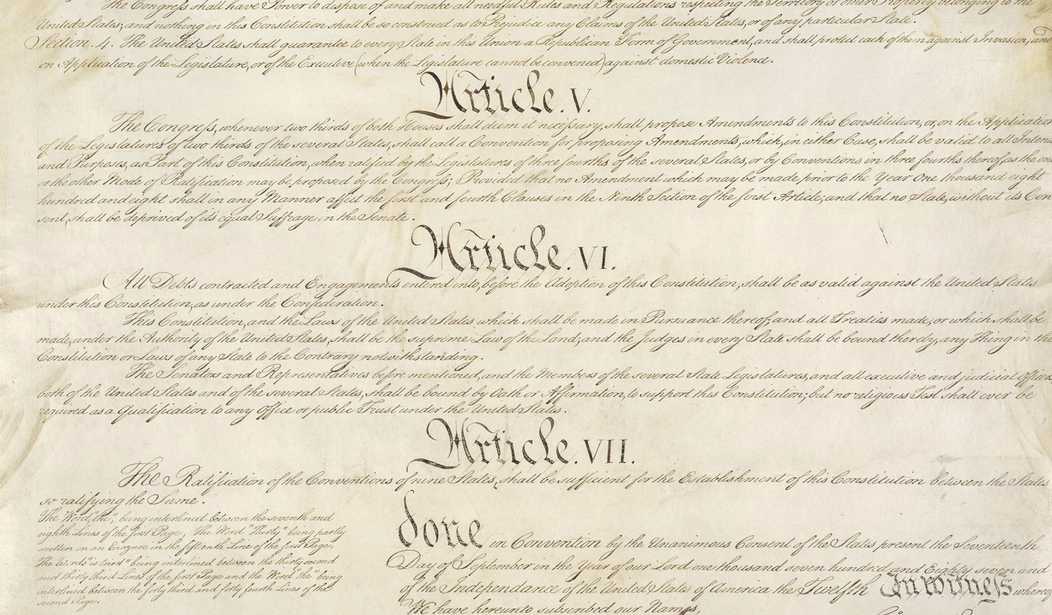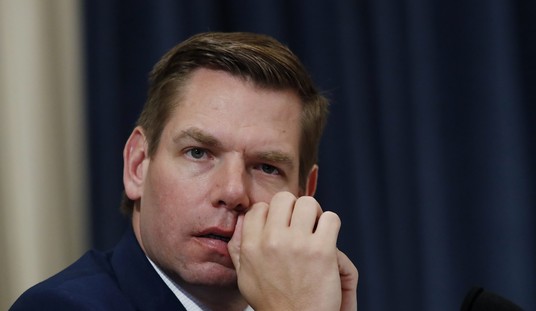We now have a president of the United States, Donald Trump, who says he is committed to streamlining the federal government. He is setting up an investigatory arm of the administration, the Department of Government Efficiency (DOGE), to identify and recommend the removal of wasteful government programs, departments, and personnel.
There is a case to be made for going much further, to return the federal government to what the Founders intended, to pare it once more back to its proper constitutional boundaries. This will go beyond trimming the fat; it will involve cutting the imperial colossus our federal government has become down to the bone and then paring away some of the bone to boot.
Let's talk about crime and punishment for the third installment of this series. This is a bit of a different topic, as crime and punishment are where the government does have a legitimate role in protecting the liberty and property of the citizens. We should note that most law enforcement and corrections departments (prisons) are run at the local and state levels. But there are certain inalienable rights that the citizens possess that the government is not allowed to interfere with, and one of those is the right to defense of one's self, one's family, one's property, and one's community. This is where government has a role - but the role is generally at the local and state level. We will see, though, that there are a few things that the federal government can do.
Previously on RedState: Let's Get Serious About Reducing Government, Mr. President. Part I: The Proper Role of Government
Let's Get Serious About Reducing Government, Mr. President. Part II: Foreign Affairs and Trade
In a free society, people interact with each other through trade – each exchanging value for value in voluntary transactions, in which each party realizes personal gain from that transaction. If someone seeks to obtain property from another through deceit, that is fraud; if they seek to obtain it by force or threat of force, that is robbery.
The use of force is only reasonable in reaction – a civilized person does not initiate the use of force but may react to it. A citizen may use force in self-defense in reaction to the use of force or the threat of force. The government is the citizen’s proxy in these matters, in the form of police forces and military forces, but ultimately, the responsibility for a citizen’s defense lies in their own hands.
In recent decades, the right of self-defense has been codified in increasingly liberalized concealed-carry laws. During the debates that led to the adoption of these laws, opponents screamed at the horrors that would ensue from letting law-abiding citizens, who were willing to obtain permits, undergo background checks, and verify competency, carry concealed handguns. Predictions ranged from shootouts over parking spaces to “Wild West” mayhem in the streets. None of those things happened – not anywhere, ever. Concealed–carry permit holders, as a class, are far more law-abiding and peaceable than the citizenry as a whole.
Why is this important?
The criminal element in every society should live in fear. Would-be robbers, rapists, and thieves should live in a constant state of terror – terror of discovery, of capture, of confrontation. In our major cities today, the opposite is true – in some neighborhoods, criminal gangs, some home-grown, some made up of illegal immigrants, have all but taken over. It is in precisely these locations that the citizenry has been largely deprived of their right of self-defense, and the criminal element in those jurisdictions will be undeterred until the fear that lives in the hearts of their victims is transferred to the hearts of the criminals.
It is not the place of the government to restrict law-abiding citizens for fear of what they might do. It is the place of government to punish the criminal – swiftly and harshly. To that end, the government should:
1) Institute a penal system that is not cruel, but is nevertheless unpleasant. Prisoners, with few exceptions, should not have access to cable television, smokes, or conjugal visits. They should be required to work – hard labor is not out of the question – and prisoners who will one day be released should have access to educational materials to assist them in their transition to civilized society. Prison is, above all, punishment. It should be spare, it should be difficult, and the malefactor who leaves prison walls should have foremost in his mind that he never, ever wants to go back.
2) Recognize, in law, the citizen’s right to self-defense. Not only concealed-carry legislation but Stand Your Ground and Castle Doctrine laws assure a citizen’s right to defend home and family without any requirement to give ground. In the United Kingdom today, a homeowner who uses deadly force to prevent a home-invasion robbery is liable to see prison time for it – this is an obscenity, a deadly violation of the rights of men in a civilized society.
3) Apply the law in an even-handed manner. No preferences for certain groups, no leniency for selected individuals, no matter what their connections, wealth, or lack thereof. What the laws do for anyone, they do for everyone, or they do for no one.
Among the various rights of a citizen in a free society, two are paramount: The right to life, and the right to property – that is, to obtain property through trade, and to retain that property. The criminal element seeks to violate one or both of those rights through fraud or violence. It is the legitimate role of the citizen to use force – physical or legal – to stop them. That force must be used swiftly, fairly, and justly. A law-abiding citizen should never have cause to fear the law. A criminal should always have cause to fear the law and the citizens that the law represents.
For the alternative state of affairs, see Chicago.
So where does the new administration come in? The role of the federal government here should be limited. There are cases for federal law enforcement to be involved; in enforcing immigration policy, dealing with criminals who cross state lines, and so forth. But while there are few legitimate roles for Washington in enforcement, there are some things that Congress and the executive could do to further the citizens' security in their liberty and property, chief among them, the passage of concealed-carry reciprocity per the full faith and credit clause of the Constitution, and the immediate arrest and of anyone with a criminal record who enters the country illegally.














